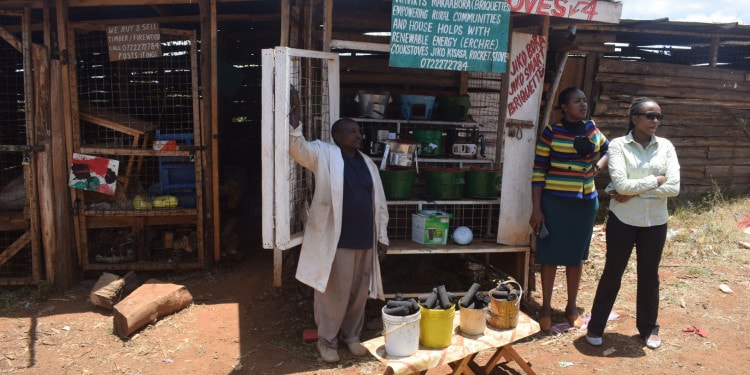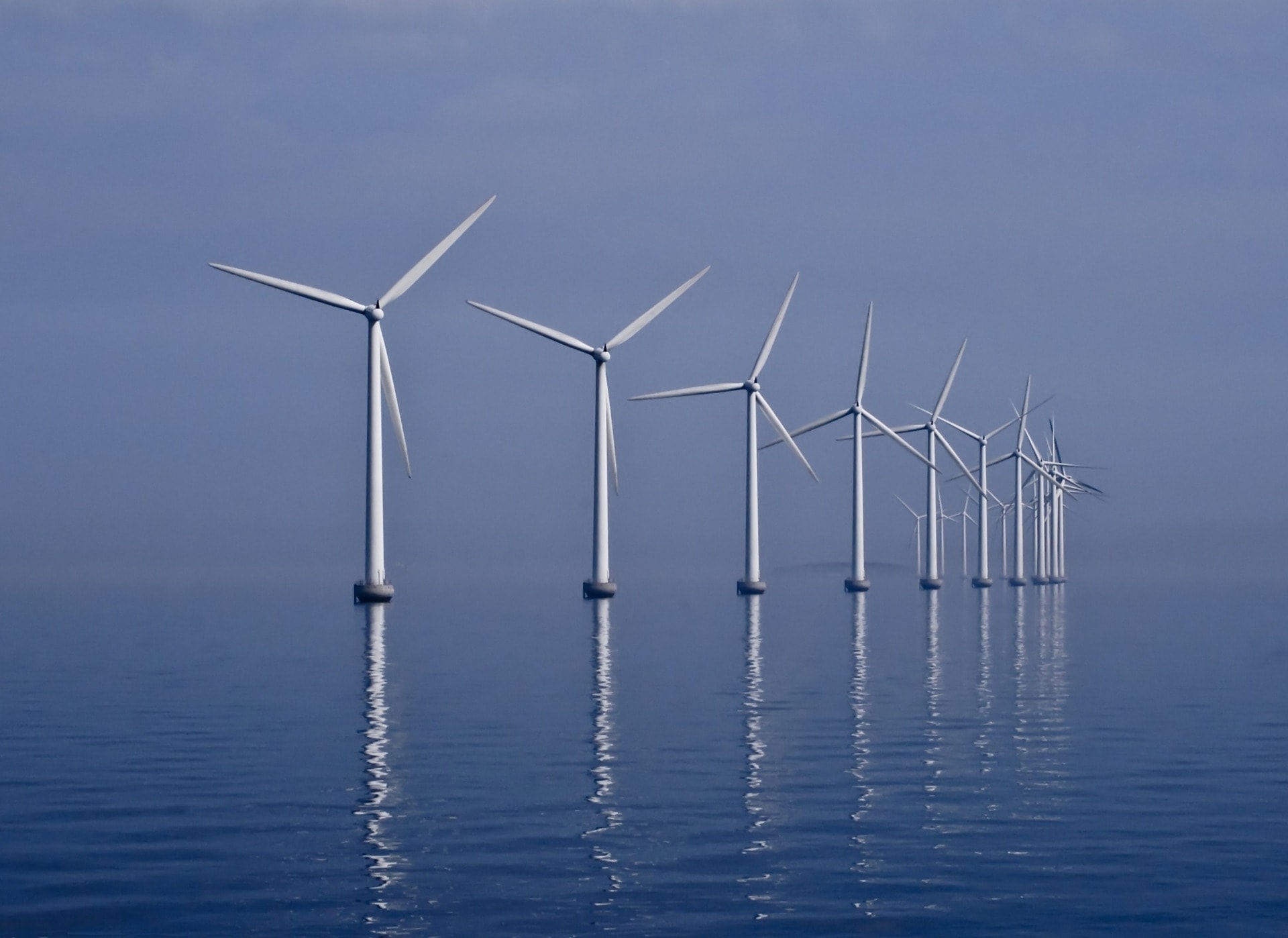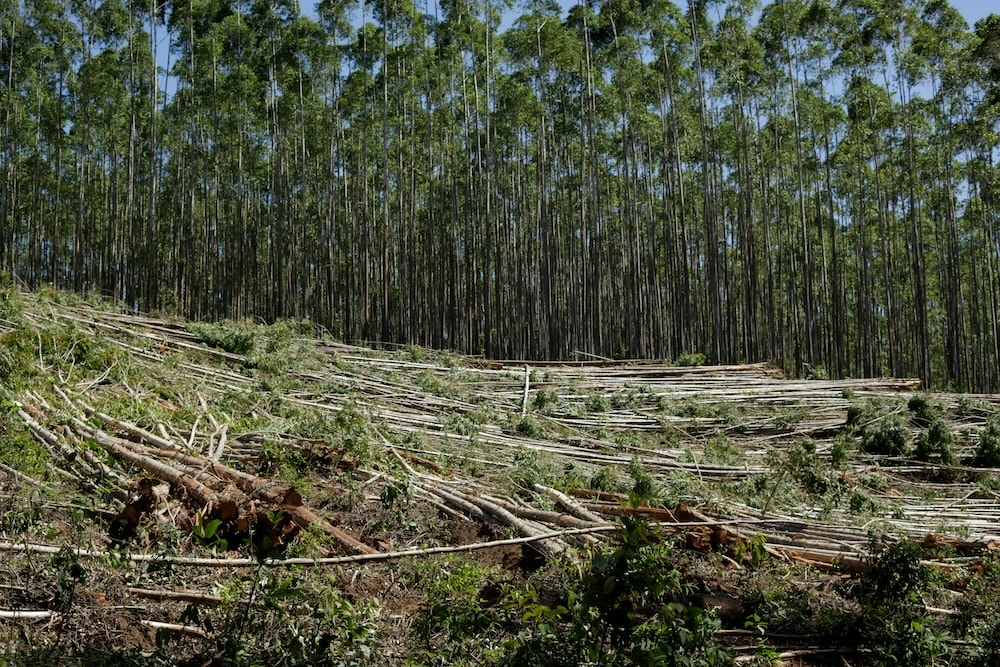The Rainforest Alliance is supporting tea farmers in Kenya by developing inexpensive, accessible renewable energy sources and reducing deforestation.
On December 19, 2019, the General Assembly of the United Nations announced its decision to create International Tea Day (celebrated on May 21), devoted to issues in the food and agriculture sector. The tea sector was recognized as the major source of income and sustainable livelihood for millions of families living in developing countries and as the labor-intensive sector, which provides jobs in remote and economically disadvantaged areas.
It was also noted that tea is one of the most important cash crops, which tea value chain improvement would significantly contribute to the 2030 Agenda for Sustainable Development.
Kenya and tea sector: challenges and issues
Kenya is the world’s third-largest producer and exporter of tea, after China and India. More than 3 million Kenyan families depend on tea for their livelihoods. Kenyan rural tea landscapes rely currently on charcoal and firewood to heat citizen’s homes and power their stoves.
As Kenya’s population and the economy grow, the demand for wood fuel and timber for construction is accelerating. At the moment, Kenya has enough wood to meet only 70 percent of this demand via sustainable domestic supply. This shortage has led to a national deforestation crisis, which has contributed to massive water shortages across the country.
Tea factories use vast quantities of firewood for tea processing. A single tea factory burns the equivalent of 100-150 trees a day to dry and wither tea leaves, putting terrible pressure on Kenya’s forests, which has depleted about 5,000 hectares a year in recent years.
The massive demand for firewood takes a toll on forests, and the use of solid fuels damages people’s health (early childhood pneumonia, low birth weight, lung cancer, bronchitis). Kenya counts 21,650 premature deaths yearly caused by exposure to smoke from polluting, open fires, or inefficient fuels. Smoke from firewood and charcoal causes 16,600 deaths in Kenya each year.
In addition to that, on March 12, 2020, the World Health Organisation announced the Coronavirus Outbreak as a pandemic. At the moment (June 3), according to the Worldometers website, there are 6,513,891 cases with more than 384,642 deaths worldwide. The COVID-19 pandemic is affecting many Kenyan communities, which depend on the tea sector, as the tea sector’s output and demand in tea fall.
Fortunately, some organizations continue supporting Kenyan communities, encouraging renewable-energy entrepreneurship, reducing deforestation, and improving public health. One of the examples is The Rainforest Alliance.
 In the photo: Kenya Tea Factory. Photo credit: The Rainforest Alliance.
In the photo: Kenya Tea Factory. Photo credit: The Rainforest Alliance.
The Rainforest Alliance and Kenya
The Rainforest Alliance, an international non-profit organization, was founded in 1987. The mission of the organization is, with the alliances of farmers, forest communities, companies, and consumers, to create a better and more sustainable world – by helping to stop deforestation; protect human rights; improve the health and livelihood of tea-farming communities; and helping farmers to mitigate and adapt to the climate crisis.
The Rainforest Alliance has more than 2 million certified farmers, more than 100 sustainability projects and more than 5000 companies in collaboration in more than 70 countries (on December 2019).
More than 84% of Kenyans rely on traditional biomass as their primary energy source for cooking and heating, contributing 69% of firewood and 13% of charcoal. Most tea farmers use firewood and charcoal to power their stoves and heat their homes in rural Kenya.
The Rainforest Alliance has an established ground presence in Kenya. It is now developing a sustainable renewable energy supply chain that complements their other work to support the well-being of tea farmers and communities while decreasing the pressure on Kenya’s threatened forests. The project is planning to prevent the loss of 80,000 trees over four years. As tea factories use lots of firewood (estimated at 29,000 m3 of firewood per year) for tea processing, The Rainforest Alliance’s project aims to reduce firewood in tea factories by 30%.
 In the photo: Signs at Kagwe front gate. Photo credit: The Rainforest Alliance.
In the photo: Signs at Kagwe front gate. Photo credit: The Rainforest Alliance.
Solution
The project aims to provide a total energy access solution for poor farmers to meet their cooking and lighting needs against lower costs, while advancing their health and education potential.
The Rainforest Alliance project encourages the uptake of carbonized briquettes (made from waste materials like sawdust and corn husks) in Kenya’s tea-growing landscapes as an alternative source of fuel to address the dangers of traditional cookstoves and support local livelihoods.
Developing inexpensive, accessible renewable energy sources is essential to conserving forests, which are the best defence against climate change due to their tremendous carbon-absorption capabilities. Replacing wood fuel with renewable, low-smoke briquettes also brings multiple benefits to the tea farming communities within Kenya:
- improved health
- less time for women and girls spent on gathering firewood for cooking
- new opportunities for entrepreneurship among women and young adults
- employment and education
- significant cost savings.
Many farmers are now switching to the biomass briquettes, which bring clear health benefits and are more cost-effective. Switching to briquettes from firewood, for example, cuts fuel costs by more than a third. This project is designed to help 50,000 families save money, reduce carbon emissions, and create healthier homes.
The Rainforest Alliance provides training in the use and maintenance of energy-efficient cookstoves to farmers and entrepreneurs and facilitates access to financing to purchase these stoves. There are seven centres in Kenya where the briquettes are made out of forestry and agricultural waste (such as sawdust and corn husks) and provide safe fuel to families, as well as employment opportunities.
Furthermore, The Rainforest Alliance’s initiative makes good use of biomass that would otherwise go to waste, thereby reducing more carbon dioxide going into the atmosphere. When used in conjunction with highly affordable cookstoves and solar lamps in homes, the briquettes also bring significant health benefits to communities in tea-producing regions.
 In the photo: Mary Waiyego with the biomass briquettes she produced in her Household Energy Centre. Photo credit: Urvi Kalra, The Rainforest Alliance.
In the photo: Mary Waiyego with the biomass briquettes she produced in her Household Energy Centre. Photo credit: Urvi Kalra, The Rainforest Alliance.
Partnership
The IKEA Foundation
The IKEA Foundation, the financial backer of the Empowering Rural Communities and Households with Renewable Energy (ERCHRE), is part of the project. The Rainforest Alliance, in partnership with the IKEA Foundation, are uniquely positioned to help realize a shift from wood fuel to low-smoke briquettes made from tea production waste and discarded produce scrap.
As Jeff Prins, Program Manager for the IKEA Foundation said about The Rainforest Alliance: “The negative impacts of climate change are threatening the progress many impoverished communities have made. For these communities, curbing the emissions that lead to climate change and building climate resilience is crucial. This is what we are trying to achieve with our new partnership with The Rainforest Alliance.”
Kenyan Tea Development Agency (KTDA)
The project also leverages The Rainforest Alliance’s longstanding partnerships in Kenya’s tea sector, including the Kenyan Tea Development Agency (KTDA). It is part of The Rainforest Alliance’s long-term vision: a world where people and planet thrive in harmony.
KTDA Operations director, Alfred Njagi, said about the partnership with The Rainforest Alliance: “This partnership will enhance awareness for renewable energy and have our smallholder tea farmers and factories adopt energy sources that have less impact on the environment.”
 In the photo: Biomass briquettes left to dry in the Household Energy Centre where they are produced. Photo credit: The Rainforest Alliance.
In the photo: Biomass briquettes left to dry in the Household Energy Centre where they are produced. Photo credit: The Rainforest Alliance.
What impact will the project bring?
The Rainforest Alliance program aims to reach 50,000 families, including 150,000 children, through the promotion and adoption of more efficient and sustainable energy solutions, both in tea factories and households. The project supports the creation of biomass briquette production facilities and Household Energy Centres (HECs), which will offer new employment opportunities to women and young adults to deploy these sustainable solutions.
Tea-farming families will have better access to clean energy to meet cooking and lighting needs, improving their health. During the project, The Rainforest Alliance estimates that this work will prevent more than 80,000 trees from being cut down.
The project also supports the transition in Kenya to greater use of renewable energy. It promotes a social enterprise model in which key activities will be sustained through business operations after the life of the project. It works at different levels:
Central Processing Facility.
The project is funding the financial analysis, business modelling, and outreach to potential investors. It will enable one or more privately funded facilities to supply fuel briquettes made from agricultural waste to the tea factories. The market among tea factories for briquettes made from renewable materials is strong and will remain so. The plan is that briquettes will become part of the fuel source of KTDA’s factories, reducing demand for wood, which drives deforestation. KTDA is committed to a policy of introducing renewable fuel and is cooperating with the project to determine the quality standard and project demand volume that aligns with supply capacity.
Household Energy Centres (HEC).
These comprise existing businesses with which the project is cooperating to scale up their production and build demand for renewable energy products. These may include small manufacturing units of carbonized briquettes, suitable for use in households and institutions like schools and hospitals, or suppliers of other renewable energy products, such as stoves and lighting.
Last-mile distributors
These are existing micro-businesses distributing renewable energy products from the HECs. They are carrying branding to build recognition and demand and holding promotional events in the villages.
 In the photo: An HEC, household energy centre, that sells all these clean-energy products. Photo credit: The Rainforest Alliance.
In the photo: An HEC, household energy centre, that sells all these clean-energy products. Photo credit: The Rainforest Alliance.
What impact has The Rainforest Alliance’s project already brought?
Solar Energy Consumption
Since the program started, 13,019 households have switched to briquettes, solar energy, and efficient cookstoves:
- 1,835 – Using solar systems
- 10,198 – Using efficient cookstoves
- 986 – Households using briquettes
Household Energy Centers
Seven community-based Household Energy Centres (HECs), where the briquettes are made on-site, and farmers can buy low-cost briquettes, have already been established. Efficient biomass cookstoves and solar lighting products are already for sale.
Training
The Rainforest Alliance has trained seven entrepreneurs who run the HEC’s, who are supported in the production by 21 employees. The project has recruited 22 entrepreneurs to sell cookstoves and solar lighting across the landscape to promote renewable energy in places far from HECs.
Ongoing briquette use training started in at least twelve tea factories; factory boiler operators have been given technical skills on how to co-fire briquettes and firewood at a ratio of 20:80 (briquettes: firewood). At least ten factories have started using briquettes in tea processing.
Central Processing Facility
Negotiations with investors are underway to establish a Central Processing Facility (CPF) to support the project. The CPF will supply high-quality commercial briquettes to the tea factories and supply pellets to the HECs for distribution to households.
Trees in the tea landscape
By partnership with KTDA (The Kenya Tea Development Agency), the project has established tree nurseries in 12 factories aiming to have over 1,000,000 trees within a year. Twelve tree nurseries with at least 150,000 seedlings each. The project targets to grow over 1,000,000 trees in the tea landscape for one year.
The Rainforest Alliance, through alliances with farmers, companies, and other organizations, supports the tea sector in Kenya through replacing wood fuel with renewable, low-smoke briquettes. Thus this solution mitigates climate change, reduces deforestation, improves public health, supports small businesses locally, moves to renewable energy sources, supports gender equality and women empowerment, and brings the production story of tea to life.
Editor’s Note: The opinions expressed here by Impakter.com contributors are their own, not those of Impakter.com.














